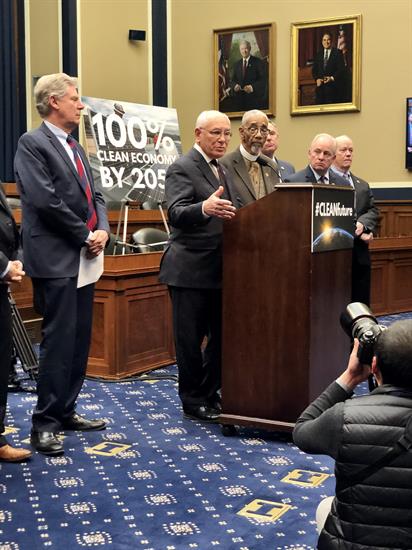- Home
- About
-
Constituent Services
- Academy Nominations
- Community Project Funding
- Congressional Art Competition
- Congressional App Challenge
- Congressional Commendation
- Event Invitation
- Grants
- Help with a Federal Agency
- Internships
- IRA Clean Energy Consumer Benefits
- Know Your Rights: Immigration
- Request a Meeting
- Request Surplus Books
- Presidential Greeting
- Visit Washington D.C.
- Issues & Legislation
- News
- 20th District
- Contact

Press Releases
Tonko Advances Electric Vehicle Charging Rebate BillClean vehicle infrastructure boosts economic opportunity, expands charging station access for current & prospective EV owners
Amsterdam,
April 30, 2021
AMSTERDAM, NY—Congressman Paul D. Tonko celebrated the introduction of his bill, the Electric Vehicle Infrastructure Rebate Act of 2021. His forward-looking legislation would provide incentives to encourage U.S. consumers, as well as public and private entities, to invest in electric vehicle charging infrastructure, driving expanding access to public and workplace charging stations, and encouraging additional electric vehicle adoption. Rep. Tonko’s bill dovetails with key components of President Biden’s American Jobs Plan, which—among many other clean energy goals—seeks to establish grant and incentive programs for state and local governments and the private sector to build a national network of 500,000 EV chargers by 2030. “Spurring a national transition to electric vehicles would tackle America’s largest source of greenhouse gas emissions in the transportation sector, and bring significant economic opportunities,” Congressman Tonko said. “My EV Infrastructure Rebate Act seizes on these opportunities by creating new, good-paying jobs, opening new investments for American businesses and consumers, strengthening our energy security and lowering transportation costs for families and households. I look forward to working with my colleagues in the House and Senate to pass this legislation that will help jump start our clean energy economy.” The Electric Vehicle Infrastructure Rebate Act would:
There are more than 1.7 million electric vehicles on U.S. roads today. By 2030, that number is expected to grow to more than 18 million. America’s EV owners will require a projected 9.6 million charging stations to support this increase in electric vehicles.
|
